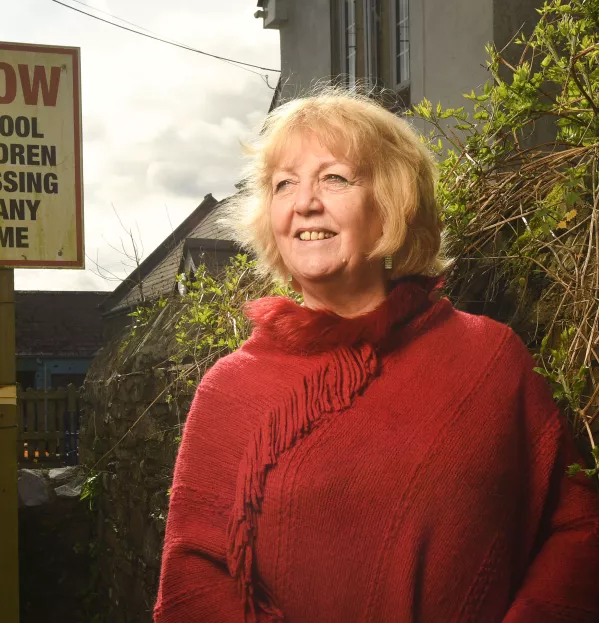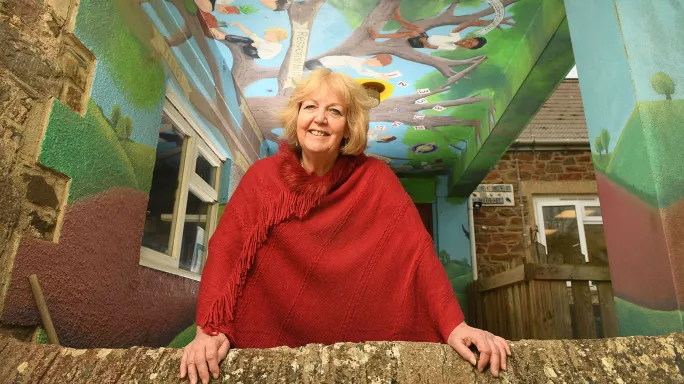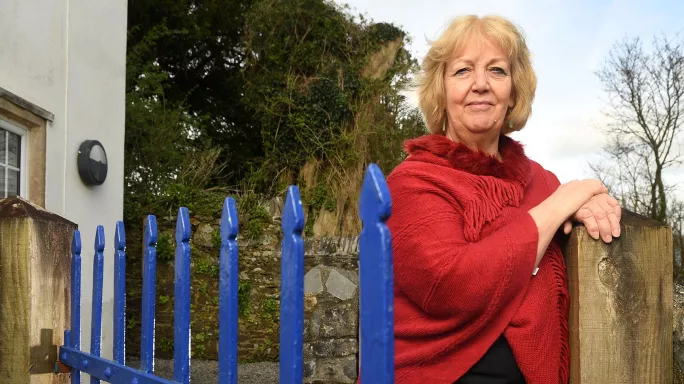10 Questions with... Nicky Dunford

Nicky Dunford is the chief executive of the Link Academy Trust, which has 19 rural primary schools across Devon that she has led since August 2019, having had a successful career in business before returning to teaching.
Answering Tes’ 10 questions, she discusses how her desire to make small schools “cutting-edge” led her to form a national strategy group, what previous ventures in business taught her about running a school, and why she wished she had gone back to the classroom sooner.
1. Who was your most memorable teacher and why?
I’m too old to remember my real teachers, but the person who influenced me the most was the last headteacher I had before I went into headship, Gill Quiggin. She was just a great, funny teacher - she did exactly as you would expect and she led by being quite straight.
She encouraged me to build my team and to make it all about working together, and gave me the confidence to apply for headship. She also had really wise messages, like: “Don’t sit and wait for the things to hit you, see them coming over the hills.”
2. What were the best things about your time at school?
I enjoyed the fun teachers, I enjoyed the fact that we went out and did things outside - we learn from experiences.
I went to a very small, rural school. I never intended to [start my teaching career] in a small school and stay there forever, but the community feel, that whole range of experiences - that’s what I loved about school.
3. What were the worst things about your time at school?
What we had to drink. We had little bottles of milk and I hated it because I grew up on a farm and milk to me smelt of cows, and just overloaded me. So I used to hide mine and pretend to drink it and instead give it to a little boy who loved milk!
4. What are you proudest of in your career?
The journey that we’ve been on as a trust. We started with six schools, and we’re now 19 - the biggest one is 200 pupils, the smallest is 38.

I feel that we’ve done something pretty special in terms of giving those schools the support they need to operate at the highest possible level because small schools can easily be considered a little bit cosy. I just want them to be cutting-edge and that’s what we do as a trust.
When I was first head of a small school, I was helping with the drains, I was mending the toilet door. You struggle to get to the bits that you should be doing.
That’s why an academy trust can be a brilliant thing for small schools because it can bring in that layer of dealing with the rubbish that you don’t want to deal with, to give heads the opportunity to make the schools absolutely cracking.
5. And what do you regret?
I regret staying in business for as long as I did. I ran a manufacturing business that sold cards, wrapping papers and a range of wooden door names.
I did six years of teaching and then 15 years of running my business. And then I just got a bit like, “this is the same old same old”, and I didn’t feel it was going to grow. I didn’t want to do it anymore.
However, it does make me think that MAT CEOs need more of that business approach. There are no grants or funding for a small business - you get on with it yourself. It gives you a philosophy, a way of dealing with things.
6. What is the best thing about the education system?
The best thing that’s happened in education is the academy movement. Being able to decide how you structure the organisation, how you manage your finances - it’s that autonomy.
It’s moved education out of the Victorian tinker-around-the-edges approach. It’s more effective in the way the money is managed.
Having a balance of people who are business orientated, alongside those on the educational side, properly integrated together, is very successful.
7. What is the worst part about education?
The funding really isn’t there. There’s also a reliance on the local authority: in Devon, we have no support for children with special educational needs or disabilities. That’s one of those scenarios where you’re not in charge of your own destiny.
I also want to know why it is more expensive to educate a secondary school child. Primary school education is not given enough credence to how important it is in a child’s development in life and learning.

8. What would you do if you became education secretary tomorrow?
MAT CEOs should have more transparency about what’s going on and I think it would be much more productive if we all work together. One of the reasons for setting up the small schools group is that we want small schools to have a voice as well.
9. Who has made the biggest difference to education in the past year?
The Confederation of School Trusts (CST). It’s so useful as a head to not be searching through everything. Every week you get an update and read what’s going on.
You know where CST is fighting your corner, where they’re doing work. It has a bit of clout for trusts now, which we previously didn’t have. I do rely on that heavily to inform on what we’re thinking.
10. Finally, what are the most important lessons you have learned from doing your current job?
It’s about listening to what people say and validating it. Do your best to come up with answers and if you can’t, be honest about it - I like the term “vulnerable leadership”.
One of the things we do as a trust is a “give back day”, as we know all of our staff go the extra mile. They are entitled to a day when they don’t need to worry about giving a reason but can just book a day off.
We’ve had people do marathons, jump out of planes, attend their child’s graduation - it shows that you value their time when they go the extra mile, that you care and that they matter.
For the latest education news and analysis delivered directly to your inbox every weekday morning, sign up to the Tes Daily newsletter
Keep reading for just £1 per month
You've reached your limit of free articles this month. Subscribe for £1 per month for three months and get:
- Unlimited access to all Tes magazine content
- Exclusive subscriber-only stories
- Award-winning email newsletters



